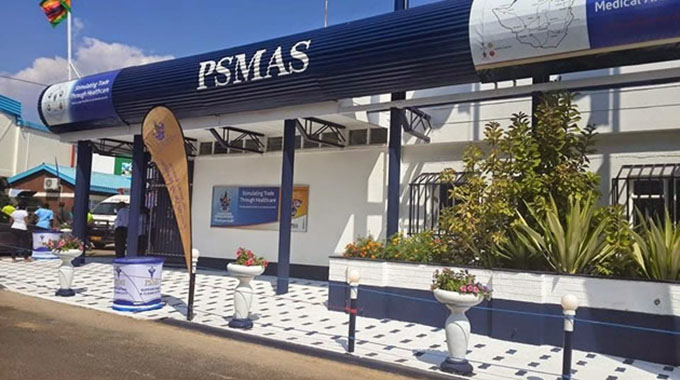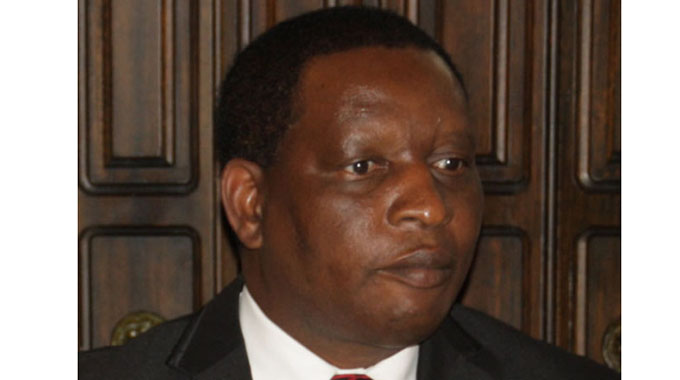Doctors demand cash upfront

Paidamoyo Chipunza Senior Health Reporter
The rocketing fees of private medical practitioners and providers of private medical services, who are all tracking their fees against the US dollar, has created problems within medical aid societies and among their members as they battle to match medical fees, but pricing many out of medical aid.
To offer full coverage, which is what is needed if doctors, hospitals and pharmacies are ready to accept cards, medical aid societies have to charge ever higher subscriptions, also based on the exchange rate or look for other solutions, such as managed health care, where costs can be reduced by having the societies’ own facilities and have doctors on salary.
With the latest increases in fees, medical aid societies are switching to tracking the official auction rate in their subscriptions, but this can produce monthly bills close to five figures for an average family, and far more than most families can afford.
The crisis has now reached one of the largest two societies, Premier Service Medical Aid Society (PSMAS), which covers many civil servants and others in the public sector, although people outside this sector can join.
But the high subscriptions required for full private coverage are not affordable by members and PSMAS has been moderating rises. But that means its payments are far below what doctors charge.
As a result, all members on PSMAS main plan and all other members on non-private plans will be asked to pay cash upfront when seeking services from doctors with immediate effect.
In his latest update to fellow doctors, Zimbabwe Medical Association secretary general Dr Sacrifice Chirisa said the latest position on PSMAS was influenced by the ‘sub economic’ reimbursement the Society was making to doctors, equivalent to US$1 at the current official rate he claims.
“In order to ensure sustainability of (ZiMA) members, all PSMAS main and all non-private sector plan members will be asked to pay cash with immediate effect as the reimbursement is sub economic,” said Dr Chirisa.
Responding to the latest position by doctors, PSMAS public relations officer Ms Tsitsi Chawatama attributed the low tariffs being reimbursed to doctors to low subscriptions being paid by members.
She said PSMAS was currently charging subscriptions lower than what service providers, who are tracking the US dollar rate, were charging resulting in huge shortfalls and currently, cash upfront policy by service providers.
“Consequently our members have been experiencing shortfalls due to the high costs of healthcare as a result of the hyper-inflationary environment,” said Ms Chawatama.
She said PSMAS will, however, continue consulting all stakeholders in order to find a solution that serves the interest of members whilst also ensuring sustainability of the service providers and medical aid funders.
PSMAS, more than most societies, runs its own medical facilities as part of reforms in the 1990s as it moved towards managed health care, that is a system where members have to use the providers facilities, cutting their choice, but in return getting cheaper cover.
Association of Health Funders of Zimbabwe (AHFOZ) chief executive officer, Mrs Shylet Sanyanga urged employers to take up medical obligations for their staff as salaries remain subdued arguing that medical aid was a tax deductible expense.
She also called on employers to remit their subscriptions on time to medical aid societies so that they can in turn reimburse service providers on time.
“As AHFoz we are aware of the challenges that are being experienced by all the players in the healthcare system, which are mainly due to the prevailing macro environmental factors.
“However we strongly encourage employer organisations to continue supporting employees’ healthcare needs by paying viable contribution rates on time, so that medical aid societies can also pay healthcare service providers on time, before the money completely loses value,” said Mrs Sanyanga.
Commenting on the latest revision of subscriptions by the societies, Mrs Sanyanga said AHFoz only provides a guideline which societies could use to negotiate with employer organisations.
“The AHFoz tariff is binding on the upper limit, therefore individual funders may negotiate fees affordable to them with willing healthcare providers,” said Mrs Sanyanga.
Asked on progress regarding development and implementation of a scientific tariff, which is expected to give birth to a ‘fair charge of medical services’, Mrs Sanyanga said development was complete and will be implemented from 1 August 2020.
The scientific tariff was promulgated by accusations that doctors were overcharging for their services.











Comments